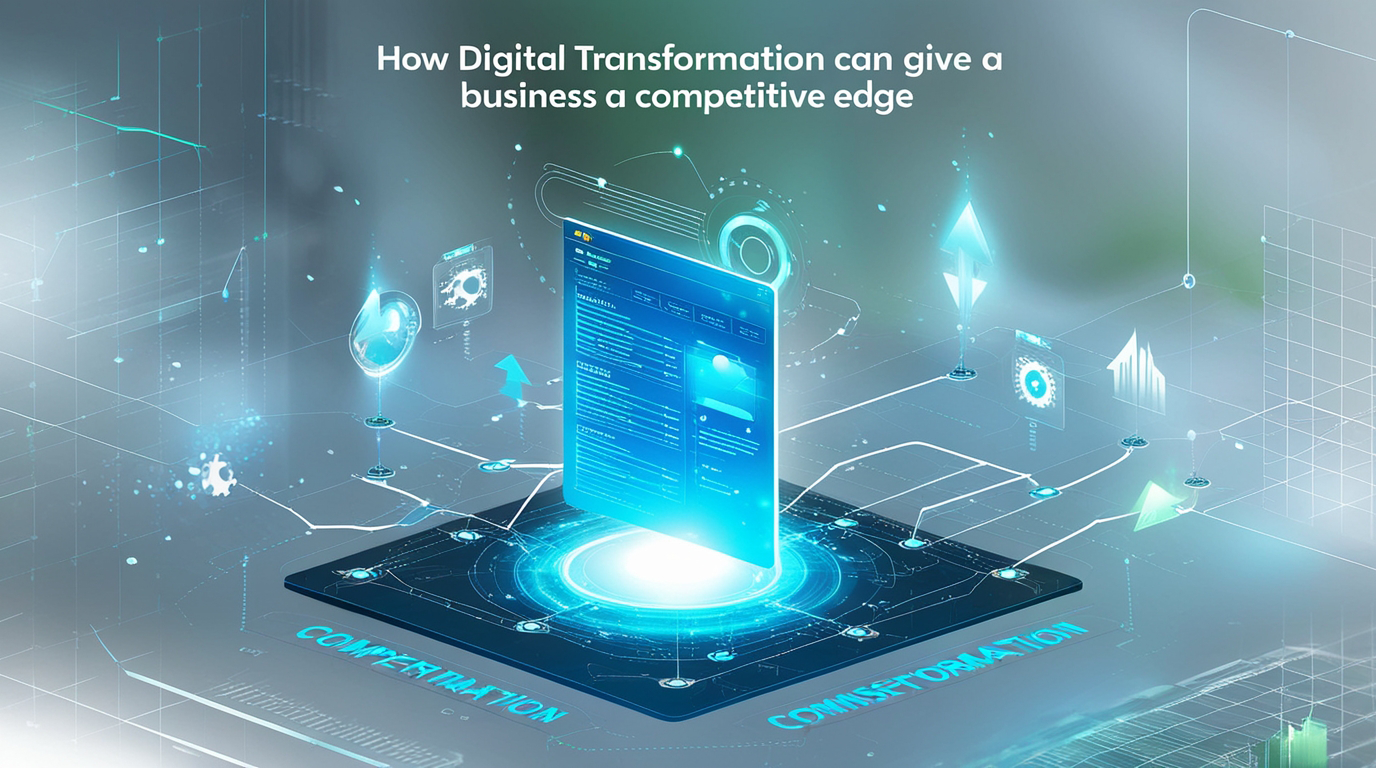Here’s how we helped them transform their operations:
- Increased Efficiency and Productivity
Manual processes, paper trails, and disjointed systems slow your business down. Digital transformation automates these processes, streamlining workflows and allowing your employees to focus on higher-value tasks. For example, automating data entry, inventory management, and customer support can save your team hours each week. This boost in efficiency enables you to serve more customers, reduce errors, and increase output—all while cutting operational costs.
For example, businesses that implement a modern Enterprise Resource Planning (ERP) system can centralize their operations, leading to better coordination across departments and faster decision-making. This kind of streamlined efficiency is critical for staying competitive, especially in industries where speed and accuracy are key.
- Better Decision-Making with Data Analytics
Data is one of the most valuable assets in the digital age, but it’s useless if you don’t know how to leverage it. Digital transformation allows businesses to harness the power of data analytics to make informed, strategic decisions.
By analyzing real-time data from your sales, marketing, and operations, you can identify trends, predict customer behavior, and optimize your strategies. For example, predictive analytics can help you forecast demand, preventing overproduction or stock shortages. Businesses that make data-driven decisions are more agile and better equipped to adapt to changes in the market—whether it’s a shift in customer preferences or new competition.
- Enhanced Customer Experience
Customer expectations have changed dramatically, with more people expecting fast, personalized, and seamless experiences. Digital transformation enables businesses to deliver this through technologies like Customer Relationship Management (CRM) systems, personalized marketing automation, and AI-driven chatbots.
By understanding customer preferences and behaviors through data, you can tailor your services and communications to each individual. Personalized experiences, from product recommendations to customized offers, keep customers coming back and help build long-term loyalty.
Additionally, technologies like AI and machine learning allow businesses to provide 24/7 customer support through chatbots and automated assistance. This level of responsiveness is often a deciding factor for customers when choosing between you and your competitors.
- Greater Flexibility and Scalability
One of the most significant advantages of digital transformation is the ability to scale your operations quickly and efficiently. Cloud-based solutions, for instance, give your business the flexibility to grow without the constraints of traditional IT infrastructure. Whether you’re expanding your customer base, entering new markets, or launching new products, digital solutions can support rapid growth.
For example, cloud platforms enable businesses to add new users, departments, or locations without the need for additional hardware or complicated setups. This means you can expand or pivot your business model more easily in response to market changes.
- Stronger Cybersecurity and Compliance
With digital transformation, cybersecurity becomes a top priority. As businesses move more operations online, they become targets for cyberattacks, making it critical to safeguard sensitive data and protect against threats. Digital transformation often includes the implementation of advanced cybersecurity measures such as encryption, multi-factor authentication (MFA), and regular security audits.
Beyond cybersecurity, many industries face strict compliance regulations regarding data handling. Digital transformation allows businesses to stay compliant with industry standards by automating processes, generating audit trails, and ensuring secure data storage and handling.
By implementing these protective measures, businesses not only protect themselves from costly breaches but also build trust with their customers. Strong cybersecurity can become a key differentiator, especially in industries where data protection is paramount.
- Innovation and Agility
Businesses that embrace digital transformation are more agile and open to innovation. Digital tools enable faster product development cycles, allowing businesses to bring new products and services to market more quickly. With technologies like cloud computing, AI, and IoT (Internet of Things), businesses can innovate and experiment with new business models without significant risk or cost.
This innovation extends to customer service as well. By leveraging AI, machine learning, and automation, businesses can provide more personalized, efficient, and innovative ways to meet customer needs. Agility in today’s competitive market is crucial for staying ahead, and digital transformation provides the tools to make that agility possible.

